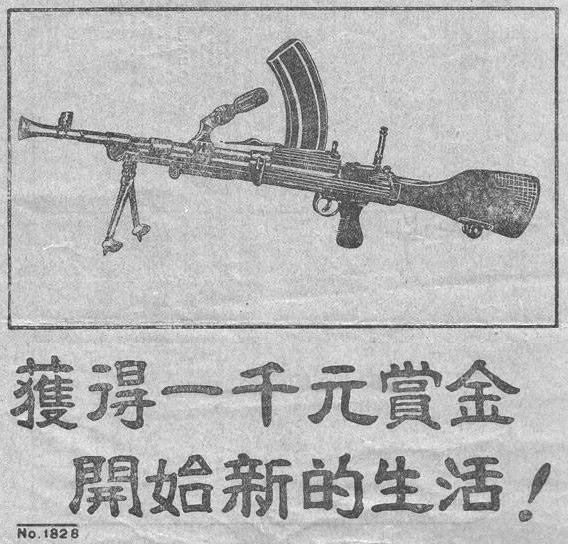
Image: Leaflet dropped on Malayan Communist Forces in 1953, offering $1000 as reward for surrendering their arms to security forces. Courtesy of Wikimedia Commons.
Download PDFs: Malaya, in three parts
Part One: The Malayan Union Experiment 1942-1948 [249MB]
Part Two: The Communist Insurrection 1948-1953 [260MB]
Part Three: The Alliance Route to Independence 1953-1957 [244MB]
Volume Details: Series B Volume 3. First published by The Stationary Office in 1995. Electronic version reproduced with permission of the editor under an Open Government Licence.
Editor Details: AJ STOCKWELL is Emeritus Professor of Modern History at Royal Holloway, University of London. He edited the BDEEP country volume on Malaysia (2004).
Selection from Introduction:
“This volume, being the product of years of intense research and rigorous selection, is reasonably representative of the vast and wide-ranging official documentation on the end of British rule in Malaya and fairly reflects the circumstances and considerations which the archive reveals as having influenced the making of policy and decisions at this time...” (Part I, p.xxxvii)
“Malayans themselves are presented here through British eyes. The activities of nationalist politicians, their inter-relations and the extent of their support are recorded by British observers. UMNO and the campaign against the Malayan Union, the Malayan Communist Party and the outbreak of armed violence, the Alliance and the electoral landslide – these developments are documented here but in records compiled by British officials. When Dato Onn or Tunku Abdul Rahman visited London, a civil servant made notes of the meetings that took place with officials and ministers; only rarely do we hear Malayan leaders at first hand in, say, a brief letter forwarded to London by the high commissioner (114) or in an exchange of correspondence with the secretary of state (313, 314, 319, 32 1, 365, 369). By focusing on ministers and mandarins cocooned in Church House, this collection of documents, it might be claimed, deflects attention from nationalism and popular movements to the safe havens of offices and committee rooms, where cultivated minds constructed patterns from the puzzles of human affairs on the fragile assumption that ‘quiet calm deliberation disentangles every knot’.” (Part I, p.xxxvii)
